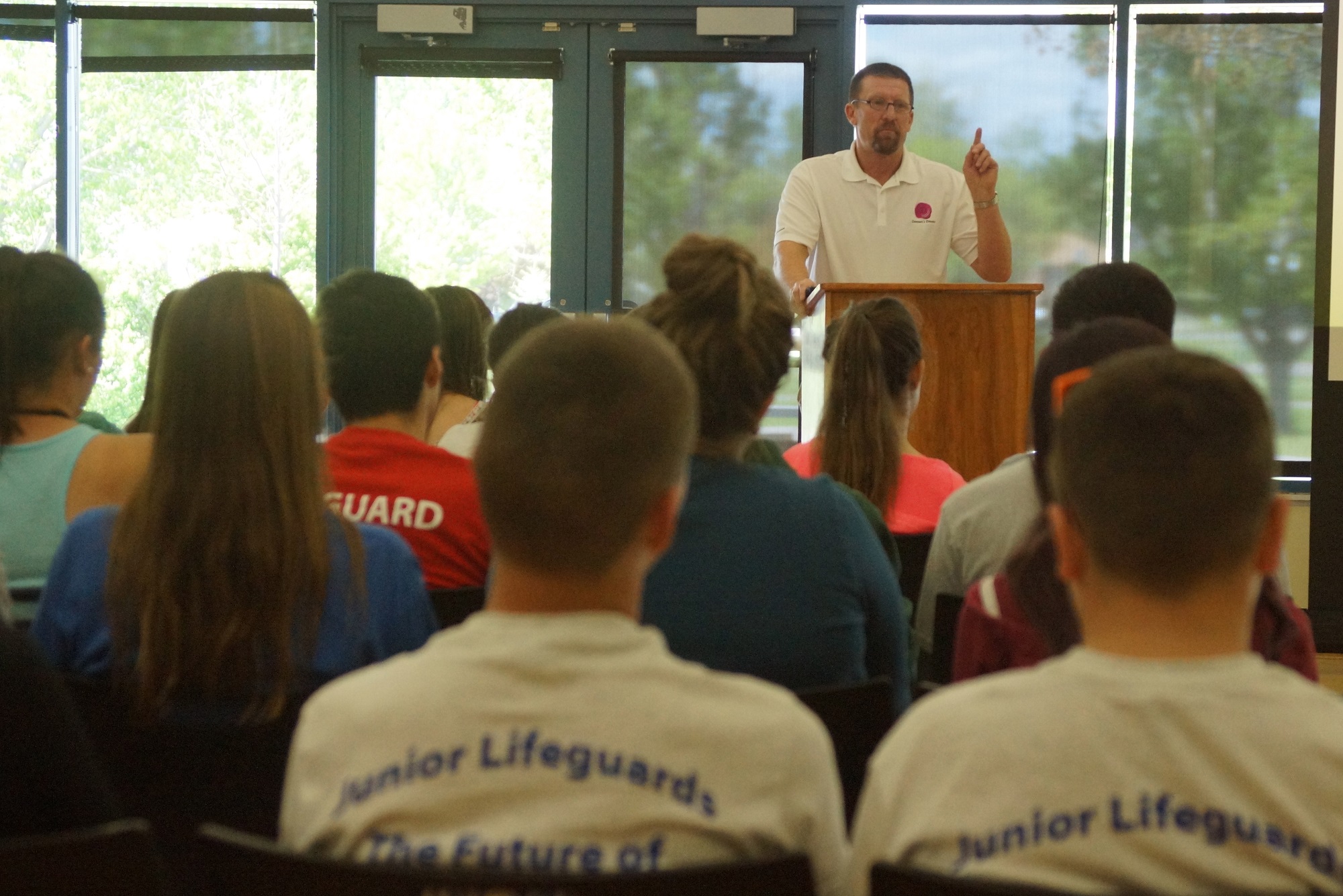Like so many of our most prominent water-safety advocates, Bill O’Melia helped heal from tragedy by finding purpose and meaning from it.
In 2010, he lost his 12-year-old son, Drennen, to drowning. Now, telling the story of how it happened helps keep his son’s memory alive.
“When I was asked to share his story that first time, I found it kind of therapeutic,” O’Melia said. “For a brief moment in time, I get to tell a room full of perfect strangers just how wonderful my son was.”
He does this now as the co-founder of Drennen’s Dreams Foundation, a national drowning prevention and water safety foundation.
O’Melia’s story has proven a powerful way to educate lifeguards on the importance of their role. And the impact of O’Melia’s advocacy has already become apparent through lifeguards who now better understand the vital role they play.
Recovering from tragedy
Drennen was a strong, athletic swimmer who had started his seventh summer of competitive swimming the day before he drowned. For any lifeguard who doubts the importance of watching every single person in the water, Drennen served as proof.
In 2010, the boy attended a classmate’s pool party at a local country club. He was found unconscious in the pool, given CPR, and rushed to the hospital, where he died. During litigation, the O’Melias learned from medical experts that their son was submerged for at least five minutes, and probably closer to 10. According to O’Melia, Drennen was found about 5 feet away from an occupied lifeguard stand, but it was the kids swimming nearby who found him first and initiated the rescue.
In the first few years following Drennen’s death, O’Melia and his wife wanted nothing to do with drowning prevention. They weren’t ready to talk about it. But in 2014, after the civil trial had ended, O’Melia was asked to share his story with lifeguards at a nearby community association.
Since his son was young and an accomplished swimmer, O’Melia feels the story resonates with lifeguards, considering they typically are teenagers.
In the first year, O’Melia spoke in about four or five districts and presented to the Colorado Parks and Rec Association Aquatics Division. The following year he made 12 speaking appearances. He met a representative of the Red Cross in 2015 at the National Drowning Prevention Alliance (NDPA) conference, and the next year he presented for the first time at a national conference.
Later, O’Melia filmed a video called “Not on Your Watch,” which became part of the Red Cross lifeguarding management curriculum. It is seen by approximately 325,000 aquatics professionals every year.
No doubt, that made a huge impact. But O’Melia wanted to extend his message beyond the lifeguards whose employment is often fleeting, as they work a couple seasons and move on. He developed another presentation aimed at more permanent figures — aquatics managers, boards of directors, and decision makers — to be given at state and national conferences for parks and recreation professionals. In 2018, he gave about 50 of these presentations.
Preventing further oversights
Today O’Melia sits on the operations committee for Families United to Prevent Drowning, a national organization and collective of groups. He recently was elected to the Association of Aquatic Professionals Board. He also co-chaired the lifeguarding and supervision portion of the United States Water Safety Action Plan, the first part of which should be coming out this year.
“We use Drennen’s story to make sure that this doesn’t happen to anybody else,” O’Melia said. “I always tell lifeguards or folks we’re presenting to that the number one priority should be that every patron or visitor goes home safe.”
O’Melia emphasized that it’s easier to proactively train to avoid a traumatic incident than to deal with an incident after it happens.
He’s seen the impact his presentation can make. In one instance, O’Melia and his wife had spoken to about 70 lifeguards at a community center in their home state of Colorado. Later that same day, a 21-month-old boy entered a splash pool without an adult caretaker’s supervision. One of the lifeguards who had attended the presentation saw the boy in the area between two slides and rescued him. The child was saved, and emergency room doctors told the parents it was due to the quick actions of the lifeguard.
O’Melia hopes to help change the culture and mindset regarding how drowning prevention and water safety are approached, but he sees the young lifeguard saving the toddler as the most impactful part of his work. “If one life is saved, all the work that we do is worth it.”



